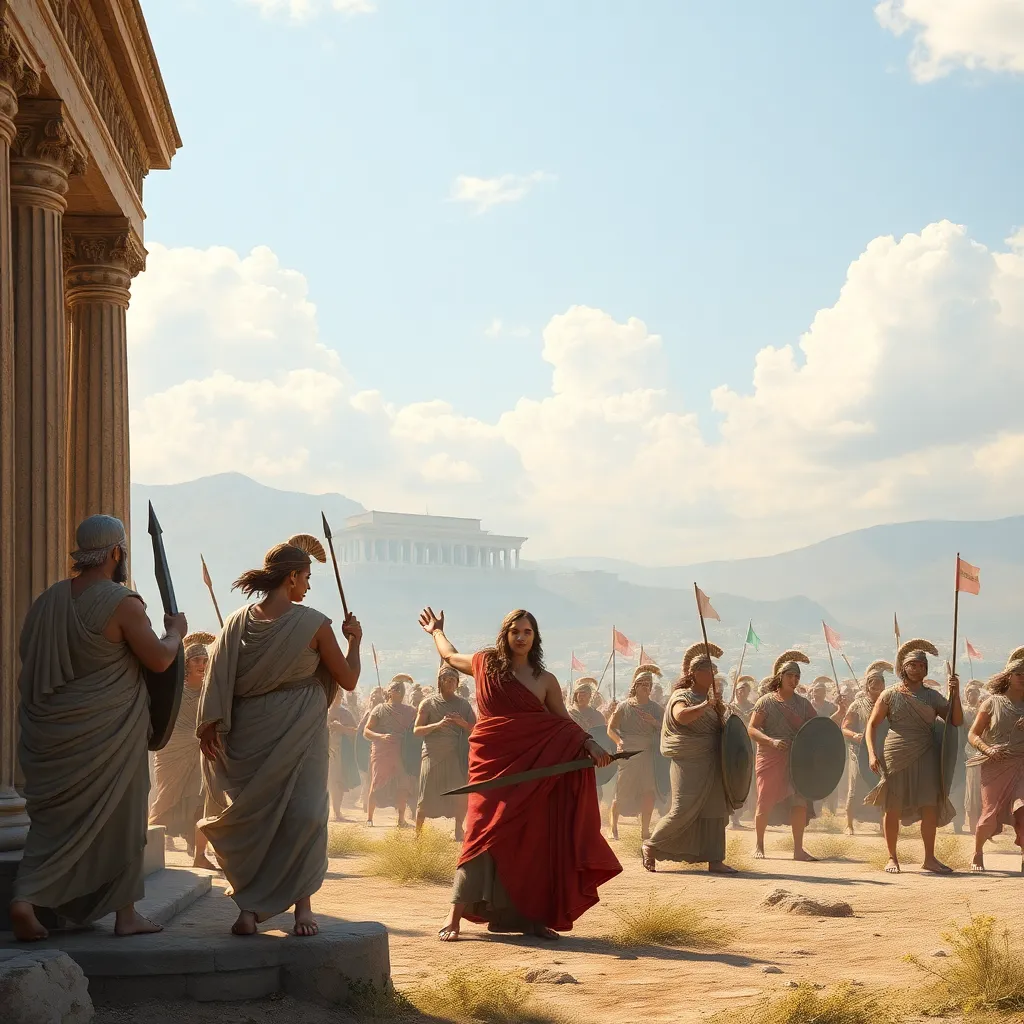The Role of Women in the Trojan War: Perspectives from The Iliad
I. Introduction
The Iliad, attributed to the ancient Greek poet Homer, is a seminal text that has profoundly influenced Western literature and thought. Composed in the 8th century BCE, this epic poem narrates the events of the Trojan War, a legendary conflict between the city of Troy and the Achaeans (Greeks). The significance of The Iliad extends beyond its narrative; it serves as a lens through which we can explore themes of honor, fate, and the human condition.
The Trojan War, rooted in both myth and history, involved iconic figures and events that have captivated audiences for millennia. It is not only a tale of heroic deeds and valor but also one that highlights the complex interplay of human emotions and relationships, particularly those involving women.
This article aims to explore the multifaceted roles of women in The Iliad and their impact on the narrative and the war itself. Through examining key female characters and their contributions, we can gain insights into their representation in a predominantly patriarchal society.
II. The Representation of Women in The Iliad
Women in The Iliad are portrayed with depth and complexity, often reflecting their societal roles while also subverting them. Major female characters include:
- Helen of Troy
- Andromache
- Hecuba
- Cassandra
Each character embodies unique qualities and attributes, revealing the various dimensions of femininity in the context of war and conflict. Women are often depicted as symbols of beauty, loyalty, and sacrifice, yet they also demonstrate strength and agency in their own right.
III. Helen of Troy: The Catalyst of War
Helen of Troy, often referred to as the “face that launched a thousand ships,” is a central figure in the narrative of the Trojan War. Her abduction by Paris, the prince of Troy, acts as the catalyst for the war, igniting a conflict that would last for ten years.
While Helen is often viewed as a passive object of desire, her character is more nuanced. She grapples with her choices and the consequences that follow:
- Helen’s beauty and allure are both her power and her curse.
- She exhibits moments of agency, expressing regret and longing for her former life.
- Her relationships with both Paris and Menelaus highlight the complexities of love and loyalty.
In this light, Helen serves not only as a catalyst for conflict but also as a representation of the broader themes of agency and consequence within the text.
IV. Andromache: The Voice of Suffering and Loyalty
Andromache, the wife of Hector, embodies the suffering and loyalty of women caught in the throes of war. Her character is portrayed with deep emotional resonance, as she navigates the horrors of impending loss and the realities of motherhood.
Key aspects of Andromache’s character include:
- Her unwavering loyalty to Hector, often placing his needs above her own.
- The profound emotional toll that war takes on her, as she fears for the safety of her husband and son.
- Her poignant reflections on the fragility of life and the inevitability of loss.
Andromache’s narrative serves as a powerful reminder of the human cost of war, emphasizing the themes of love, sacrifice, and resilience.
V. The Divine Feminine: Goddesses and Their Influence
The Iliad also features significant female figures in the form of goddesses who play crucial roles in the events of the Trojan War. Hera, Athena, and Aphrodite each influence the conflict in distinct ways:
- Hera: The queen of the gods, Hera supports the Greeks out of jealousy towards Paris and his choice of Aphrodite as the fairest.
- Athena: As a goddess of wisdom and war, she actively assists the Achaeans, showcasing the strategic and martial aspects of femininity.
- Aphrodite: The goddess of love and beauty, she champions Paris and Helen, demonstrating the power of desire and its consequences.
These divine women not only shape the events of the war but also reflect the complexities of female power and influence in a male-dominated narrative.
VI. Female Agency and Resistance
Despite the constraints of their societal roles, several female characters in The Iliad assert their agency and resist their fates. Instances of female resistance include:
- Helen’s moments of reflection and regret, questioning her role in the war.
- Andromache’s attempts to persuade Hector to stay away from battle, highlighting her desire to protect her family.
- Cassandra’s prophetic abilities, though often ignored, represent a form of resistance against her doomed fate.
These moments illustrate the complexities of women’s roles in a patriarchal society, where they navigate their limited agency while still exerting influence over the course of events.
VII. The Consequences of War on Women
The Trojan War has devastating effects on the female characters within The Iliad. The aftermath of the conflict reveals the harsh realities faced by women:
- Loss of loved ones, as seen through the grief of Andromache and Hecuba.
- Captivity and enslavement, as many women are taken as war prizes.
- The emotional and psychological toll of war, leading to feelings of despair and hopelessness.
The themes of loss, grief, and resilience resonate throughout the text, reflecting on the enduring struggles of women in times of conflict.
VIII. Conclusion
In conclusion, the roles of women in The Iliad are multifaceted and deeply impactful. Through characters like Helen, Andromache, and the divine goddesses, we see a rich tapestry of femininity that encompasses strength, agency, suffering, and resilience. These insights challenge traditional narratives of war that often marginalize female experiences and highlight the complexities of gender roles in both ancient and contemporary contexts.
The lasting relevance of these perspectives continues to inform discussions of gender and war, reminding us of the vital contributions and experiences of women throughout history.




